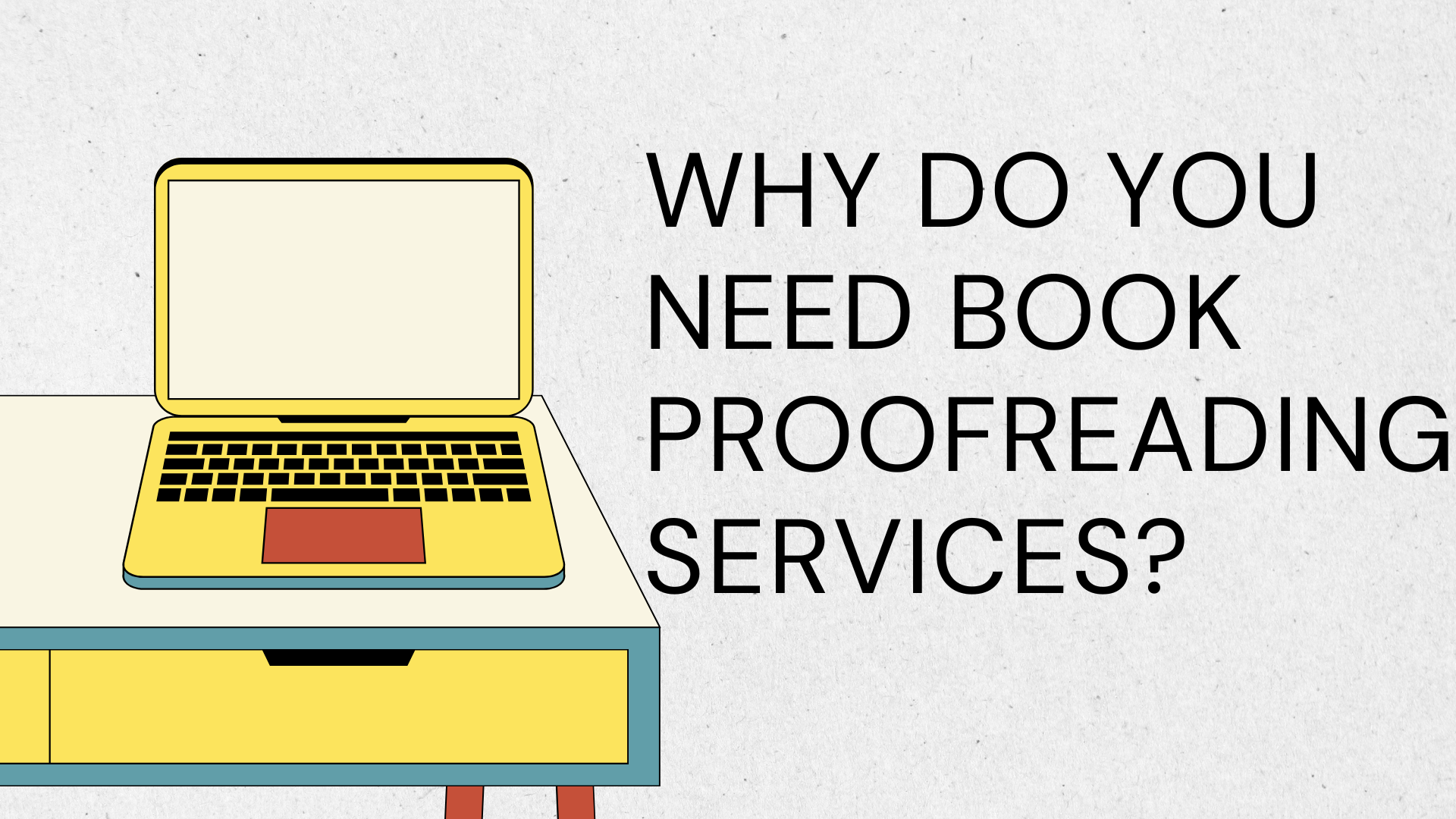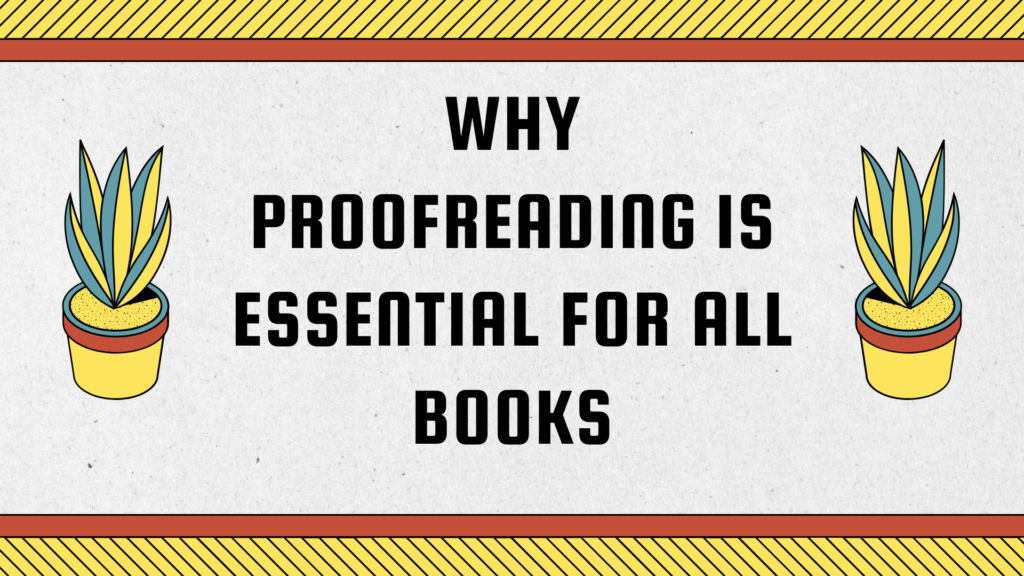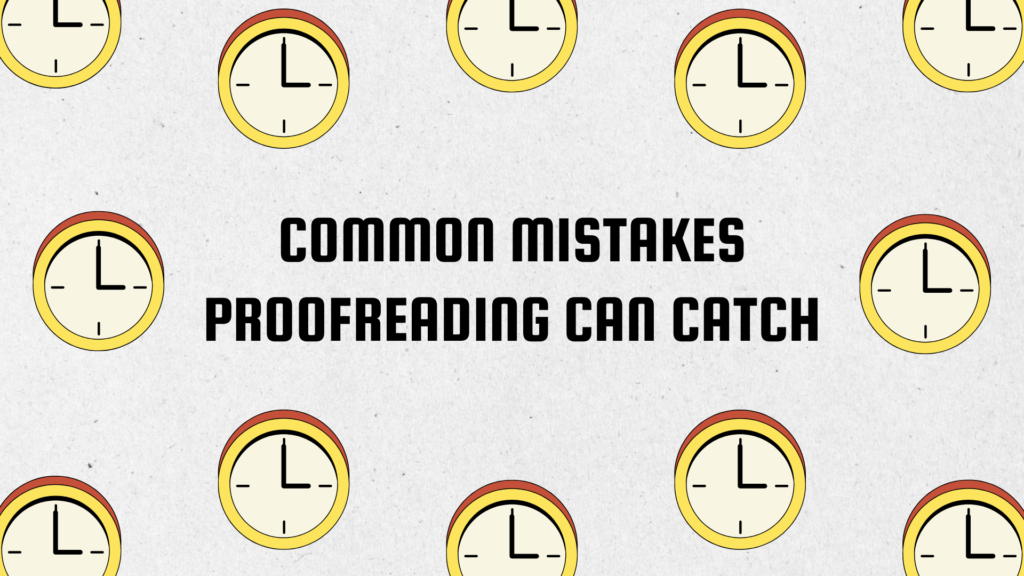
Why Do You Need Book Proofreading Services?
Proofreading is a critical part of the book publishing process, ensuring that your work is polished and free from errors before it reaches your readers. While editing focuses on content, structure, and clarity, proofreading is the final step that ensures your book is error-free, enhancing its credibility and readability.
This article explores why proofreading services are essential for your book, what makes them different from editing, and how professional proofreading can elevate your manuscript.
What is Proofreading and Why is it Essential for Your Book?

Proofreading is the process of carefully examining a manuscript to catch any grammar, spelling, punctuation, or layout mistakes. This final step ensures that your book appears professional, creating a seamless reading experience for your audience. A book full of errors can lead to distractions, turning readers away and damaging the author’s reputation.
Proofreading is essential because it ensures:
- High Professional Standards: A polished, error-free manuscript enhances the author’s image.
- Improved Readability: The final version is easier for readers to understand and enjoy.
Better First Impressions: Readers appreciate a book that is free of obvious mistakes, increasing the chance of positive reviews and recommendations.
Proofreading vs. Editing: Understanding the Difference
Although proofreading and editing are both vital to the writing process, they serve different purposes:
- Editing focuses on the overall structure of the manuscript, including its organization, clarity, and style. It may involve rewriting sentences, reordering paragraphs, and refining language.
- Proofreading, on the other hand, is more specific. It concentrates on correcting grammar, spelling, punctuation, and formatting errors that can distract or confuse readers.
Why Proofreading Services Matter: The Critical Benefits for Authors
When it comes to preparing a manuscript for publication, proofreading services offer several critical advantages:
Enhances Professional Quality
Hiring professional proofreading services can improve the overall quality of your book, ensuring it meets industry standards. The expertise of a professional proofreader ensures that no detail is overlooked, making your book as polished as possible.
Boosts Readability and Flow
A well-proofread book flows smoothly, enhancing the reader’s experience. Proofreading helps to eliminate awkward phrasing, excessive repetition, and other elements that can disrupt the narrative.
Ensures Consistency
Professional proofreading ensures that your manuscript is consistent in style, tone, and format throughout the entire book. Whether it’s ensuring that character names are spelled consistently or that the formatting is uniform across chapters, consistency is key to professional-quality writing.
Common Mistakes Proofreading Can Catch

Even the most seasoned authors miss mistakes. A professional proofreader can catch errors that often go unnoticed:
Grammar and Punctuation Errors
Proofreading ensures that grammar rules and punctuation marks are correctly applied. Mistakes like comma splices, subject-verb agreement errors, or misused apostrophes can be easily overlooked but are glaring to the reader.
Typos and Spelling Mistakes
Even if you’re an experienced writer, typos can slip through. A professional proofreader catches these small errors, ensuring that your text is clean and free from distracting mistakes.
Formatting Issues
Proofreading also involves ensuring that your book looks professional. This includes checking the layout, headings, page numbers, and the consistency of fonts and styles. Formatting errors can make your book appear unprofessional and may negatively impact the reader’s experience.
How Book Proofreading Services Impact Your Audience
The quality of your manuscript directly affects how readers perceive your work. When readers encounter a polished, well-proofread book, they are more likely to stay engaged, leave positive reviews, and recommend your book to others. A proofread book gives readers the confidence that the author has put in the effort to present a high-quality, finished product.
- First Impressions Matter: A clean manuscript creates a strong first impression, enhancing reader trust.
- Reader Engagement: Well-proofread books contribute to a more enjoyable reading experience, resulting in positive feedback and higher ratings.
The Risks of Skipping Proofreading: Why It’s Crucial for Your Book’s Success
Failure to proofread your book can lead to disastrous consequences:
Loss of Reader Trust
If your book is riddled with errors, readers may question your professionalism. Poor grammar and spelling mistakes can undermine your authority as an author, leading to negative reviews and loss of trust.
Negative Reviews and Reputation Damage
Books with noticeable mistakes often receive negative feedback, which can damage your reputation as an author. Proofreading acts as a safeguard against this risk by catching errors before they’re seen by readers.
Self-Proofreading vs. Hiring a Professional: Which Is Better?
While self-proofreading can be helpful, it often has its limitations. Here’s why hiring a professional proofreading service is the better choice:
- Self-Proofreading Challenges: When you’re too familiar with your own writing, it’s easy to overlook mistakes. You might miss grammar issues, spelling errors, or awkward sentences because your brain auto-corrects them.
- Benefits of Professional Proofreaders: Professional proofreaders bring an objective perspective. They have the expertise to catch errors that you may have missed, as well as the experience to spot nuances that need improvement.
How to Choose the Best Proofreading Service for Your Book
Not all proofreading services are created equal. When selecting a proofreading service, here’s what to look for:
Experience with Your Genre
Choose a proofreader who has experience with the type of book you’re writing. A proofreader familiar with your genre will be better able to understand the specific language and stylistic nuances required.
Attention to Detail
A good proofreader will pay close attention to small details, such as consistent spelling and correct formatting, ensuring your book looks and feels professional.
Strong Track Record
Look for proofreading services with a strong reputation and reviews. A reliable proofreader will have a proven history of delivering high-quality work on time.
Conclusion
In today’s competitive publishing world, proofreading services are a crucial investment for authors who want to ensure their book is of the highest quality. Professional proofreading ensures that your book is free from errors, looks professional, and is easy to read. This final step can make a huge difference in the success of your book, helping you build credibility, improve readability, and avoid negative reviews.
By hiring a professional, you can confidently present a polished, well-crafted book to your readers, increasing your chances of success in the market.
FAQs
What is proofreading and why is it important for my book?
Proofreading is the final step in the editing process, where a professional checks for grammar, spelling, punctuation, and formatting errors to ensure your book is error-free and polished.
Can I proofread my own book?
While self-proofreading is helpful, it’s challenging to catch all errors due to familiarity with the content. A professional proofreader offers an objective and experienced eye.
How much do proofreading services cost?
Proofreading services typically cost between $0.01 and $0.04 per word, depending on the proofreader’s experience and the complexity of your manuscript.
How long does it take to proofread a book?
The time it takes to proofread a book varies based on its length and complexity but generally ranges from a few days to several weeks.
Can proofreading improve my book’s reviews?
Yes! A well-proofread book is more likely to receive positive reviews since readers will appreciate the attention to detail and the quality of the writing.
Do proofreading services only correct grammar and spelling?
While grammar and spelling are the main focus, professional proofreaders also check for consistency, formatting issues, and stylistic errors that can affect readability.
Why should I hire a professional proofreader instead of doing it myself?
A professional proofreader brings expertise, experience, and objectivity that ensures no error is overlooked, helping to refine the overall quality of your book.

1 comment on “Why Do You Need Book Proofreading Services?”